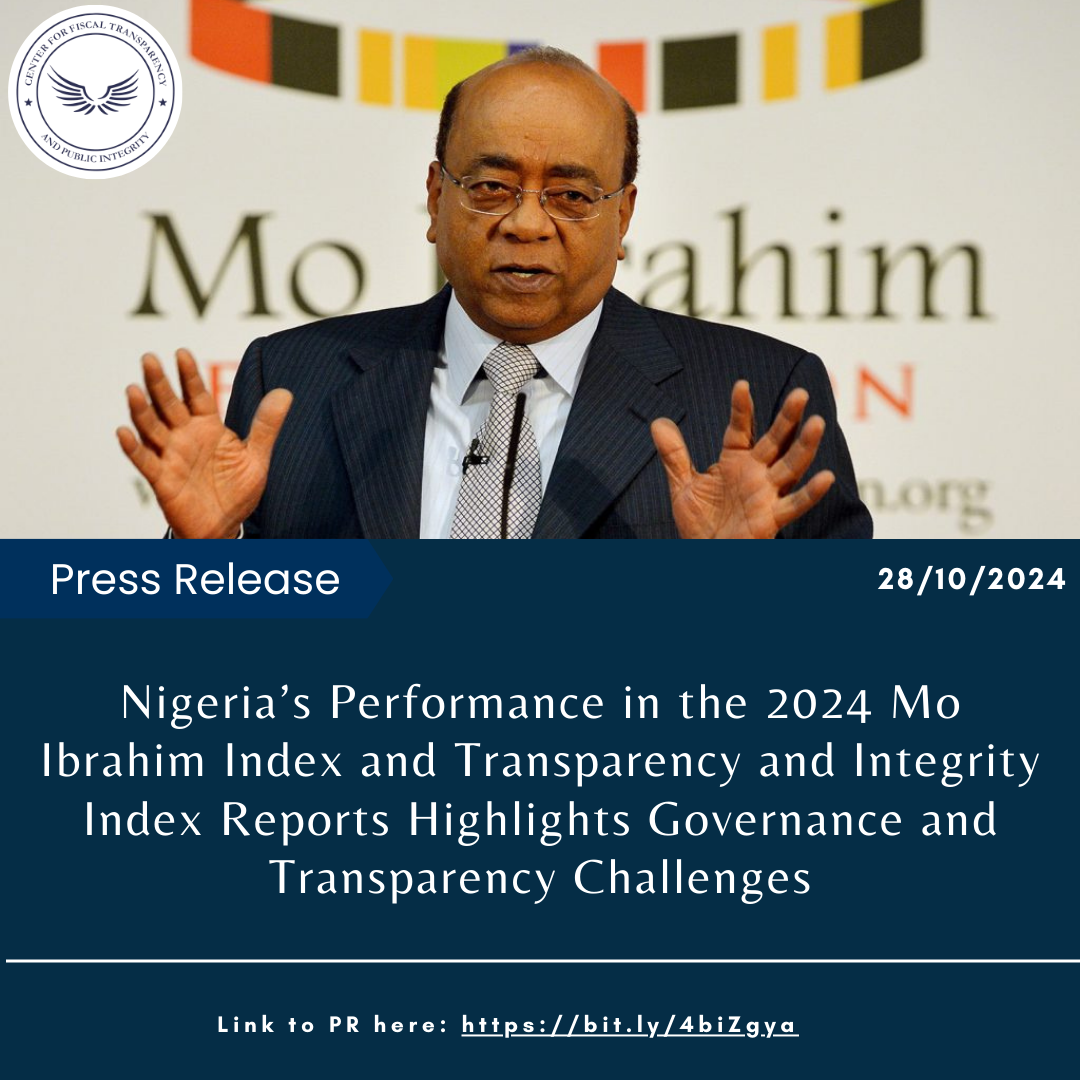The recent release of the 2024 Mo Ibrahim Index on African Global Governance reveals concerning trends in Nigeria’s governance landscape. Ranked 33rd out of 53 African nations with a score of 45.7 out of 100, Nigeria has shown a -1.4 decline in its governance score since 2014. This ranking is further highlighted by low scores across critical categories such as security & rule of law (39.7), participation, rights & inclusion (47.9), foundations for economic opportunity (48.6), and human development (46.4). These figures, juxtaposed with the performances of key public institutions, the 36 state governments and the 774 local government areas (LGAs) in the Transparency and Integrity Index 2024, also recently released by the Center for Fiscal Transparency and Public Integrity, point to the country’s systemic decline and reflect broader governance challenges in Nigerian institutions.
As Nigeria has traditionally held a prideful position as “the giant of Africa,” these rankings are an urgent reminder of the nation’s slipping standing in the African and global arenas. While Nigeria’s size, population, and resources position it as a leader on the continent, governance failures undermine its potential and influence. Both the Mo Ibrahim Index and the Transparency and Integrity Index underscore a lack of transparency, ineffective public sector accountability, and inconsistent enforcement of anti-corruption mechanisms. These indicators suggest a system that needs immediate reform to restore confidence and reverse these troubling trends.
It is important to buttress that Nigeria’s declining governance score deeply affects national and international reputation. A lack of rule of law and security affects both domestic stability and Nigeria’s investment climate, deterring foreign direct investment and constraining economic growth. The country’s performance in the areas of human development, economic opportunities, and inclusion signals challenges that jeopardize Nigeria’s ambitions to lead in Africa’s economic and political spheres.
Furthermore, these governance gaps exacerbate issues such as poverty, inequality, and infrastructure deficiencies, and diminish the quality of life for Nigerians and opportunities for socio-economic progress. A failure to address these deficits has long-term implications, from eroding public trust to an environment ripe for corruption and impunity.
In light of these findings, the Center calls on government institutions to take immediate action to improve Nigeria’s performance across these critical indicators. Importantly, we demand that the government take steps in line with the standards set by the TII to strengthen anti-corruption mechanisms to improve transparency in government dealings by enforcing compliance with the Public Procurement Act, establishing stronger whistleblower protections, and implementing clear mechanisms for accountability across public institutions.
Nigeria’s score in the 2024 IIAG on the security and rule of law variable points to the need to bolster security frameworks and judicial reforms that protect citizens’ rights, reduce incidences of lawlessness, and ensure fair and equal application of the law to restore public trust in the justice system. This can be consolidated when the system promotes civic engagement and inclusive policies that provide a platform for marginalized groups to participate.
Importantly, these reports are a clarion call to authorities to invest in human capital development by committing to increased spending on healthcare, education, and skills training programs to improve human development indicators and equip the workforce with skills to drive Nigeria’s future economic growth. The government is also enjoined to support the private sector with policies and incentives to attract foreign investment and local businesses to grow. We believe that by creating a more stable business environment with transparent regulations, Nigeria will improve its competitiveness on the African continent.
The Center calls on stakeholders including civil society, media, private sector partners, and every Nigerian to support and champion well-meaning efforts and reforms. It is high time we committed to transparent governance reforms, rule of law, and a renewed focus on human development.
Signed:
Victor Agi -Public Relations Lead

